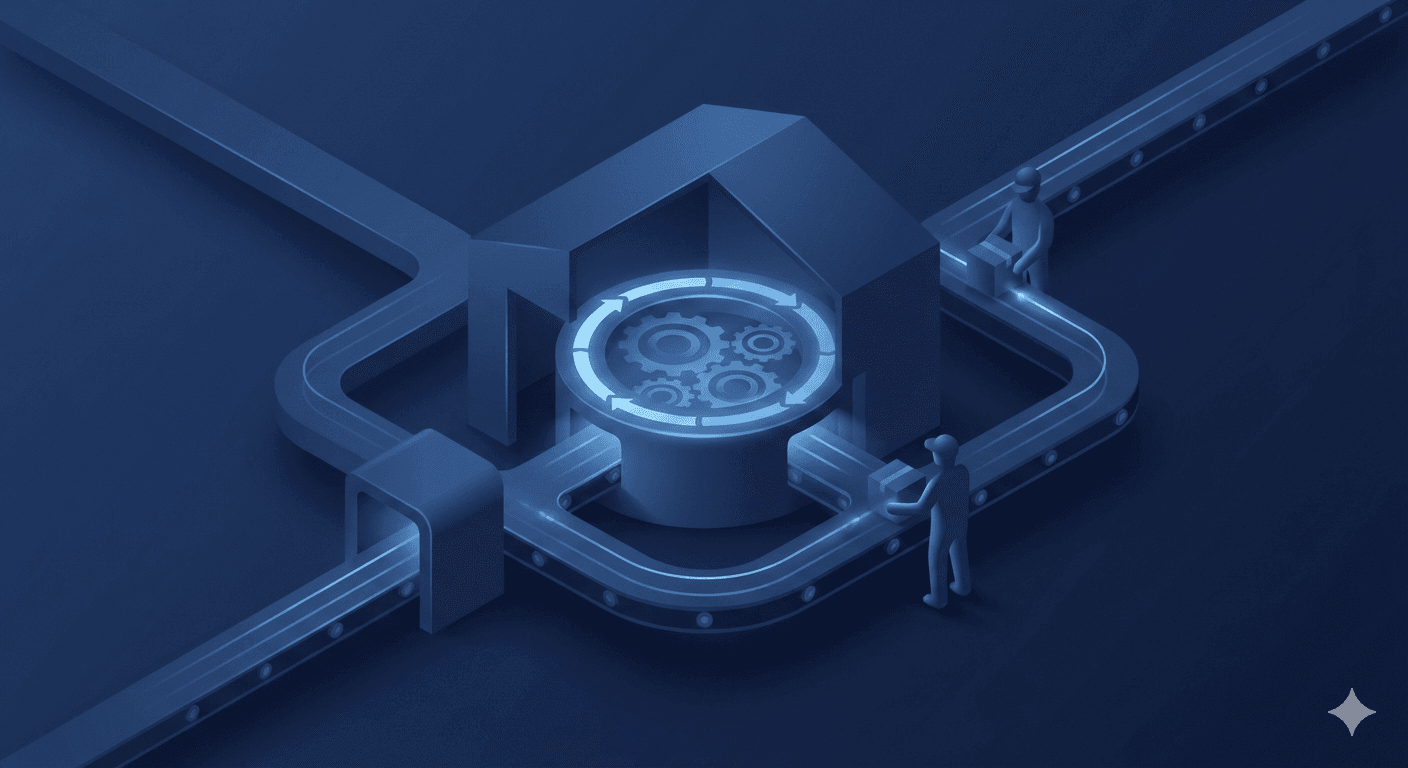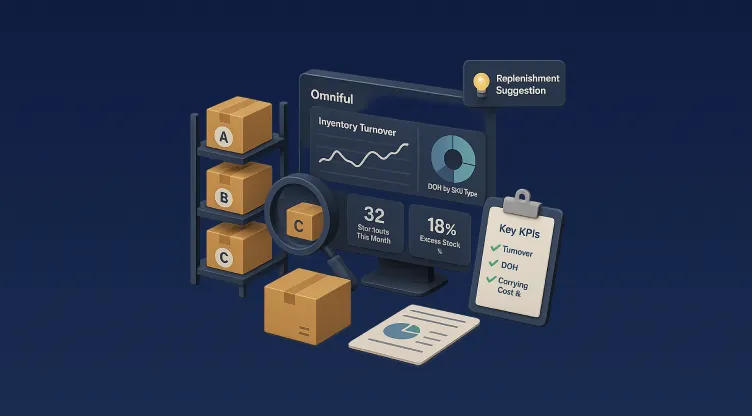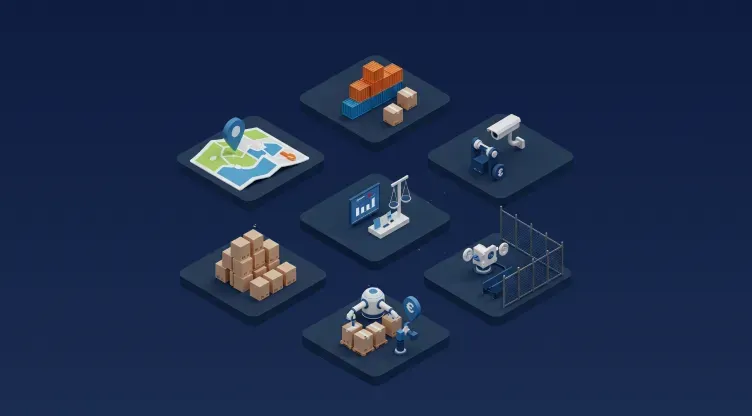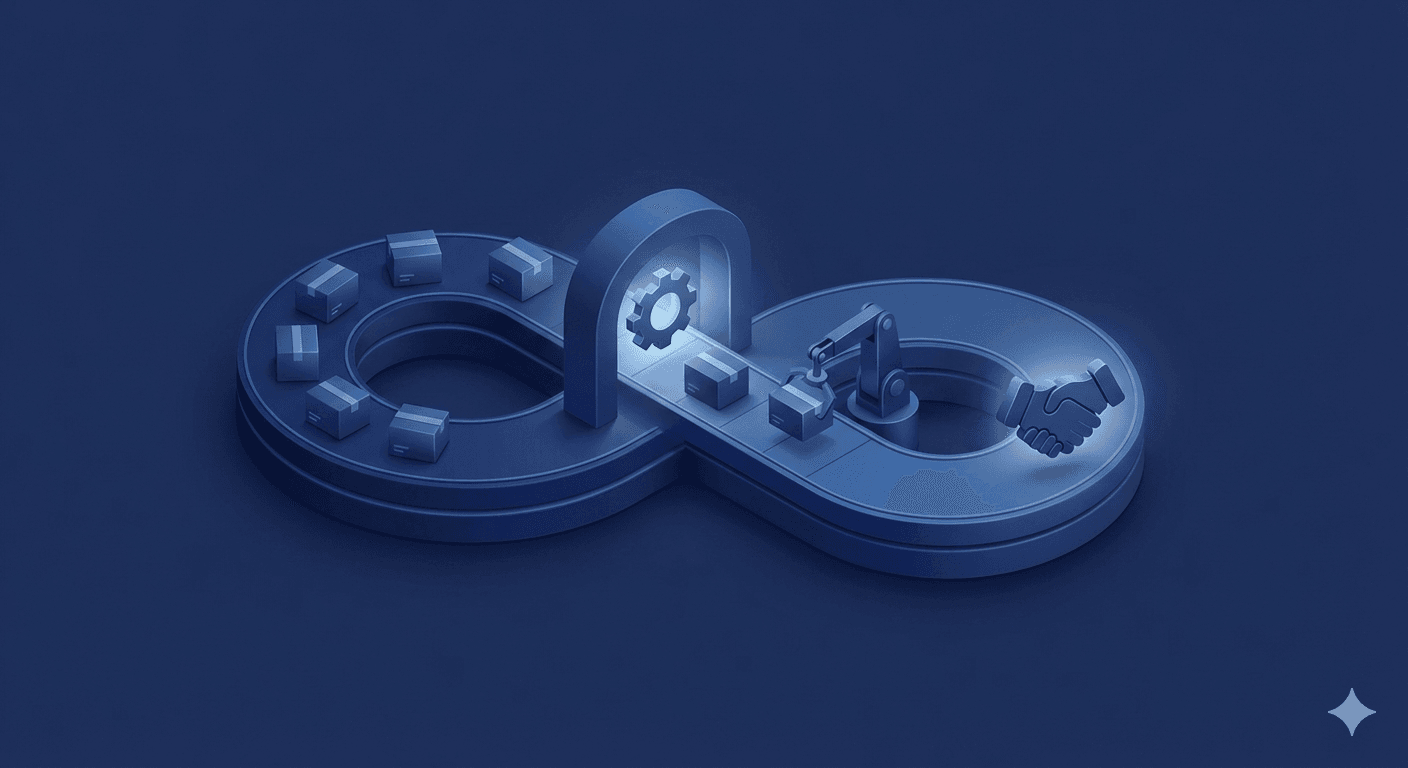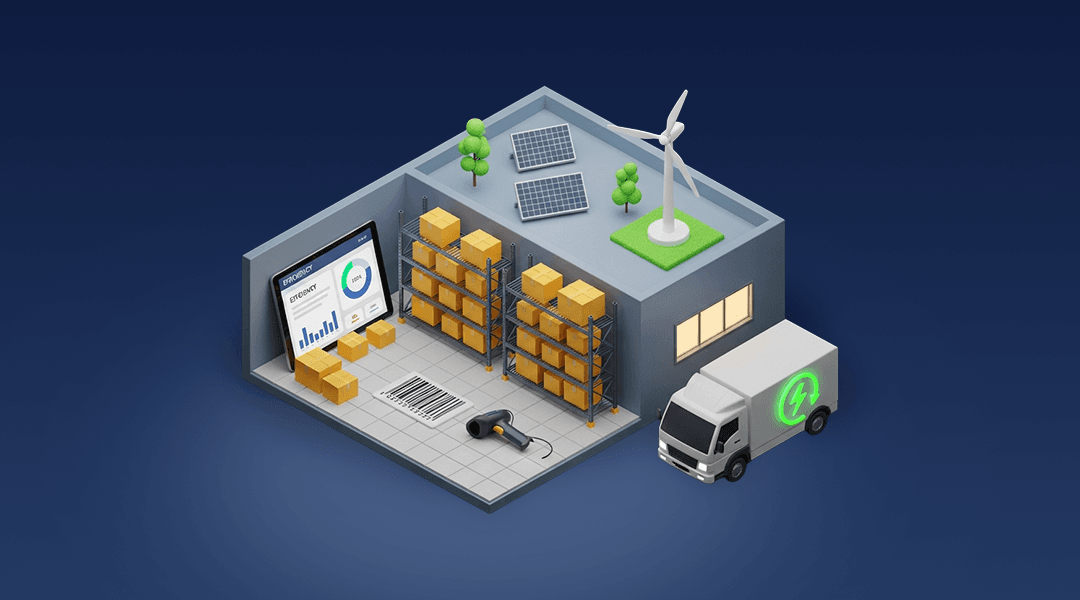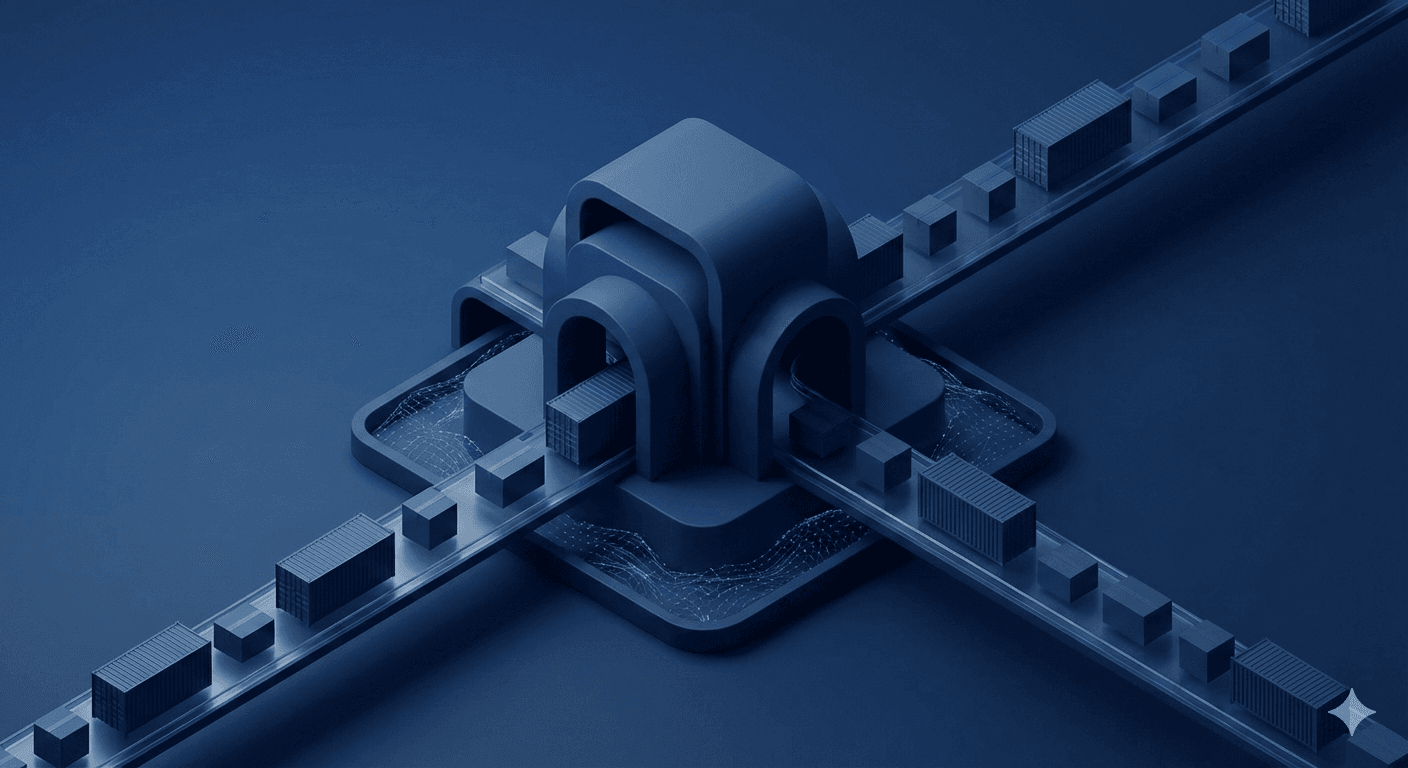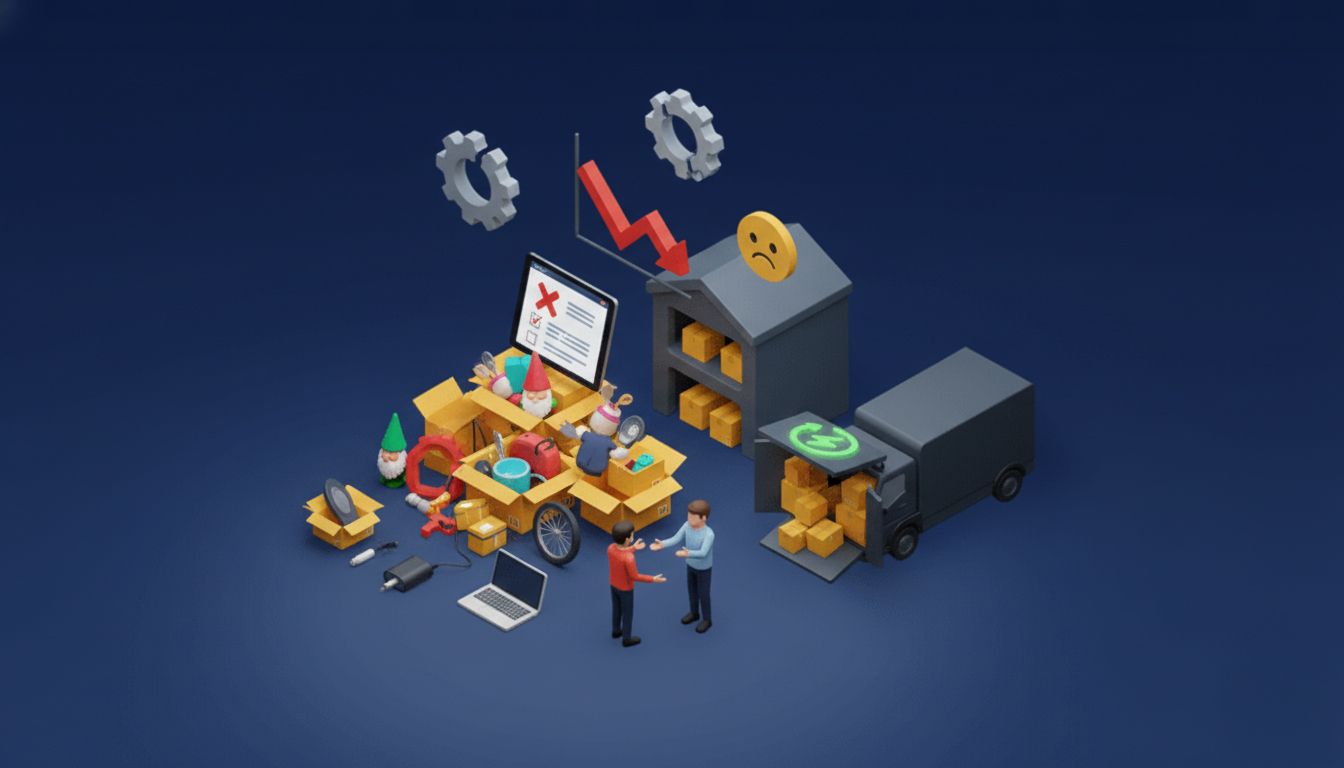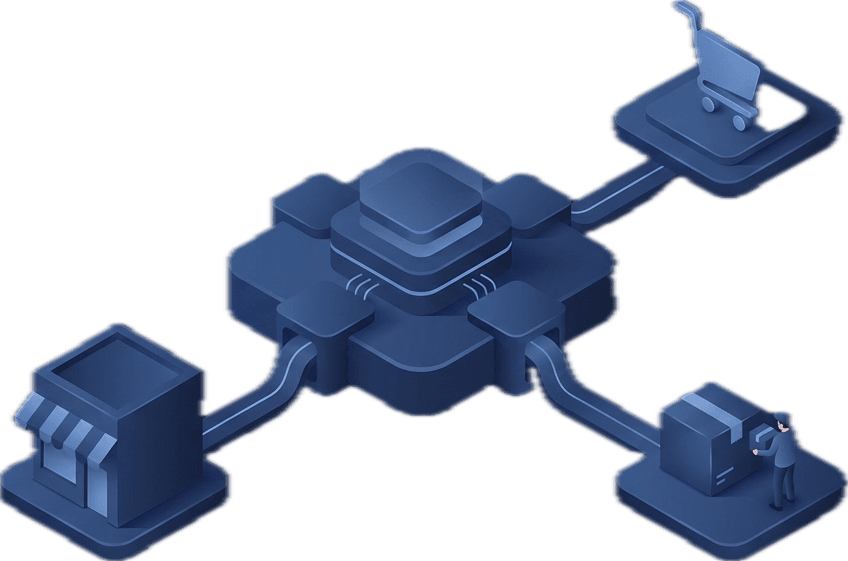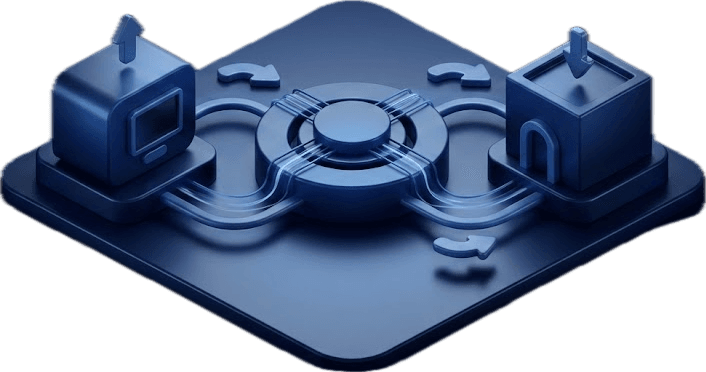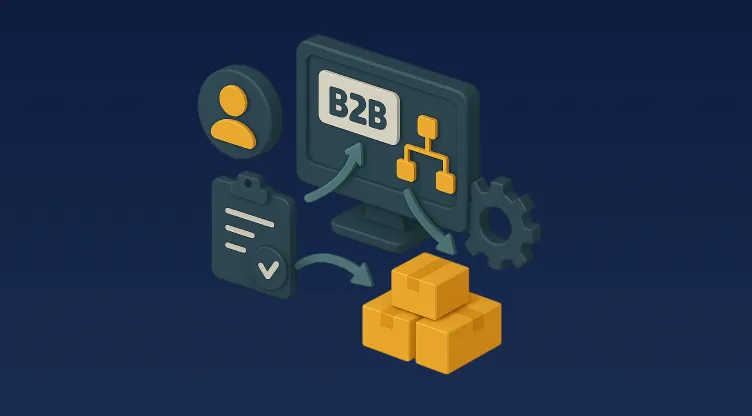Best TMS Software for Logistics & Supply Chain

Table of Contents
If inefficiencies in your logistics operations are holding you back, you're not alone. Reliance Manual route planning, scheduling conflicts, a lack of real-time visibility, and communication problems create bottlenecks, add costs, compromise productivity, and upset clients.
The global TMS market was estimated at USD 15.88 billion in 2024 and is expected to reach a CAGR of 17.5% from 2025 to 2030. Choosing the best transport management system has now become essential for businesses. With global supply chains and customer demand becoming more complex, outdated manual systems can no longer handle the pressure.
With a proper TMS software, your business can automate hectic processes like route planning, real-time inventory tracking, and faster delivery. Their seamless integrations help companies reduce errors, boost visibility, and provide time for more strategic decisions. This blog will explore different TMS market players and their pros and cons.
Decoding the Concept of Transport Management Systems (TMS)?
Transport Management Systems will make sure all your deliveries arrive on time, your routes are the most efficient possible, and you have all the information you need about every single shipment – all the time. That's what a TMS is for. Transportation management systems are the nerve center of all your transportation activities. Transport management systems record and report every order, piece, and step in the order fulfillment chain.
Whether you're planning, scheduling, executing, tracking, or analyzing, the TMS is at the heart of it all. Transport Management Systems (TMS) help lower costs, improve operations, and make your customers happier (the three most important uses of a TMS system); they are a vital investment for businesses that depend on shipping.
Top 6 Transport Management Systems in 2025

1. Omniful Transport Management Systems
Omniful TMS is one of the best cloud-based transport management systems available today. It applies artificial intelligence to streamline and optimize logistics operations for any size of business, making it more efficient and cost-effective. This system also delivers better customer satisfaction through automated key processes and real-time visibility of its transportation network.
Omniful TMS Best Features
- AI-Powered Route Optimization: Omniful TMS uses AI to calculate the best route, considering several factors, including traffic, delivery windows, and vehicle capacity. These will minimize travel time, consume less fuel, and reduce transportation costs.
- Real-time Tracking and Visibility: Monitor the fleet's location and status in real-time. See delivery developments, including possible delays, and communicate with clients beforehand.
- Automated Scheduling: Automate dispatch and optimize delivery assignments for easy scheduling. It reduces the bulk of manual effort and ensures timely deliveries.
- Capacity and Load Management: Maximize vehicle utilization and optimize loads to minimize wasted space and unnecessary trips.
- Fleet Management: Manage your fleet productively, including vehicle maintenance schedules, driver assignments, and performance monitoring.
- Driver App: Equip drivers with a mobile app for navigation and communication for proof of delivery capture alongside real-time updates.
- Simple & Instant Integration: The Omniful TMS solution easily connects to several other platforms in a plug-and-play configuration, allowing the business to run smoothly.
All these make Omniful one of the best transport management systems available today. Thus, it provides an all-encompassing solution for enterprises looking to upgrade their logistics and supply chain.
Omniful TMS Core Problems that Omniful Eliminates
- Inefficient Routing: Eliminate manual route planning and save mileage with AI-powered optimization.
- Scheduling Conflicts: Schedule conflicts will not occur while optimizing the timely delivery of the assignment.
- Lack of Visibility: Gain real-time insights into your transportation network and eliminate communication breakdowns.
- Manual Processes: Most automation will occur on the major tasks—dispatching, tracking, and reporting—to save human effort and increase accuracy.
- High Transportation Costs: Route planning, load management, and fleet efficiency enhancements toward less fueling and, therefore, lower total transportation costs.
- Driver Communication Gaps: The Advanced Driver App bridges communication gaps, reducing delays and enhancing performance.
- Suboptimal Load Utilization: Capacity and load Management ensure optimum utilization of vehicle space, thus saving costs.
Considering the above issues, the best transport management system currently comprises Omniful TMS software. It is its full product, and it focuses on enterprise customers who want a logistics operation revolution.
Omniful TMS Pricing
If you want more details regarding the prices for Omniful TMS, contact our sales team. They will send a quote according to your company's needs and requirements. To obtain the prices, call us directly.
Omniful TMS - This is one of the best solutions for businesses with transport and logistics management systems that could be optimized. Our AI-driven features, user-friendly interface, and focus on efficiency make us one of the top contenders among the top transport management systems in the market.
2. Alpega TMS
Alpega TMS is one of the best transport management systems to date. It offers a total solution for logistics and supply chain management. This cloud-based TMS software aims to streamline transportation processes, raise visibility, and optimize operations across diverse forms of transport.
Features
- Real-Time Tracking: It can track shipments from order placement until delivery.
- Route Optimization: Leveraging sophisticated algorithms to optimize delivery routes to consume less fuel.
- Carrier Management: This feature provides for managing multiple carriers, comparing rates, and being cost-effective.
- Capacity Planning: Optimizes vehicle capacity and load distribution towards optimum space usage.
- Analytics and Reporting: Analytics and reporting resources for more appropriate data-driven decisions.
Pros
- The comprehensive solution encompasses all aspects of transport management.
- User-friendly interface with easy navigation.
- Scalable and adaptable to business growth.
- Strong analytics capabilities for better decision-making.
- Pervasive carrier network for flexible transportation options.
Cons
- Alpega's TMS software may have a steeper learning curve for smaller businesses.
- Some users report occasional performance issues during peak times.
- Not all systems can be integrated easily or at once.
- No AI integration is a major con for this transport and logistics management system.
Pricing
Alpega TMS offers customized pricing based on your business's specific needs and scale. It is recommended that you contact Alpega directly for detailed pricing information.
Ratings
4.0 / 5.0 - Gartner
3. LogiNext TMS
LogiNext is a comprehensive TMS system that maximizes the efficiency of last-mile delivery operations. This TMS system provides real-time visibility, automated planning, and optimized routes to companies of any size. LogiNext is considered sound and is usually the first choice of e-commerce, retail, food and beverages, and courier services seeking to enhance delivery efficiency and customer satisfaction.
Features
- Real-Time Tracking and Visibility: All-around visibility of the logistics process through real-time order tracking with live data feeds.
- Route Optimization: It uses advanced algorithms to make optimum routes for efficient fuel consumption and minimize transportation costs.
- End-to-End Order Management: Provides access to comprehensive order information, including ETAs, assigned routes, and proof of delivery.
- Live Delivery Tracking: Creates correctly estimated ETAs and provides customers real-time delivery information.
- Analytics and Reporting: Offers robust business intelligence tools for performance analysis and informed decision-making.
Pros
- Improves delivery efficiency and reduces costs.
- Enhances customer satisfaction through timely deliveries.
- It gives real-time visibility and control of operations.
- The mobile app also gives users an intuitive interface with its LogiNext Driver AppTM.
- Integrates with various e-commerce and order management systems.
Cons
- Pricing might be an issue for small business firms.
- Some users complain of infrequent technical faults.
- Customization is available only in selected areas.
Pricing
LogiNext offers flexible pricing according to your business's specific requirements and size. They are open to allowing quotes to be requested through their sales team.
Rating
4.6/5 - Gartner
4. Blue Yonder
Powered by AI and machine learning, the transport management system from The Blue Yonder can provide real-time shipment or cargo visibility, demand forecasting, and even automatic decision-making. As one of the best transport management systems, companies can predict disruptions and quickly change demand and supply. It's ideal for mid-sized to large firms looking at efficiency in transporting and logistics processes.
Features
- Multi-Mode Transportation Planning: Optimizes routes and scheduling over modes of transportation.
- Real-Time Visibility: This transport management system will offer complete, end-to-end visibility from order to delivery.
- AI-Powered Optimization: Advanced AI algorithms optimize routes and carrier selection for cost-effectiveness.
- Carrier Collaboration: Improves communication and interconnections to the carrier networks.
- Automated Planning & Cost Reduction: Maximizes efficiency with street-level routing capabilities.
- Load Building: Blue Yonder's load-building software builds 3-D, inventory-aware truckloads for maximized trailer utilization—one of the unique features amongst the top transport management systems.
- Dynamic Transportation Modeling: Provides scenario testing for network optimization and disruption management.
Pros
- Advanced AI and machine learning capabilities for accurate forecasting and optimization.
- Complete end-to-end supply chain visibility.
- Carrier management and collaboration tools.
- Flexible deployment options: cloud-based and on-premise.
- Integration capabilities with other supply chain solutions are robust.
Cons
- This system's extensive functionality makes it too sophisticated for implementation and configuration.
- Blue Yonder TMS is a costlier solution; the price may be relatively high for certain companies.
- It might be too feature-rich for some of the smaller businesses.
Pricing
Pricing for the Blue Yonder Transport Management System is based on your specific needs and the size of your business. The best practice is to request that Blue Yonder provide a custom quote based on your requirements.
Rating
4.2/5 - Gartner 4.1/5 - Glassdoor
5. FreightPOP
FreightPOP TMS is a cloud-based transport management system that promises to simplify shipping for big and small companies, mainly by having the key to simple usage and a relatively low service cost.
Features
- Multi-Modal Shipping: Supports LTL, FTL, parcel, ocean, drayage, rail, and air shipments.
- Rate Shopping: Shop and compare thousands of carrier rates on a single screen.
- Real-Time Tracking: Track incoming and outgoing shipments with map view and milestone tracking.
- Advanced Analytics: It uses Microsoft Power BI for predictive analytics and shipping metrics.
- Automated Auditing: Automated auditing clarifies non-consistent quotations and Invoices for proper, error-free billing.
- Load Optimization: This maximizes productivity by incorporating load planning, automated packing, and palletization.
- Carrier Management: Thousands of carriers are integrated with APIs to ensure smooth communications and efficient operations.
Pros
- A full service covering various transport modes.
- Easy-to-use interface with fast onboarding.
- Integration with over 1500 existing systems.
- Powerful analytics for data-driven decision-making.
- Book shipments in under a minute and reduce 30% of your shipping costs on average.
Cons
- It may have a steeper learning curve for some advanced features.
- Pricing can be higher for smaller businesses with limited shipping volumes.
- Some users report occasional slowdowns during peak usage times and an outdated UI.
Pricing
FreightPOP offers varying price specs and support levels based on the product. Contact FreightPOP to get a quote specific to your needs.
Rating
4.7/5 - Capterra
6. Manhattan TMS
This is one of the top transport management systems in the market, offering a tremendous solution with comprehensive logistics and supply chain management. The advanced TMS software of this system helps businesses optimize transportation operations and handle different cost-cutting measures with overall efficiency, from carrier selection to route optimization and fleet management.
Features
- Continuous Optimization: Utilizes in-memory computing for agile, scalable applications that adapt to changing parameters.
- Real-Time Optimization: Employs applied intelligence for better, faster operational decisions in distribution planning.
- Intelligent Route Mapping: Automatically selects the best route generation techniques without oversight.
- Multi-Modal Optimization: Industry's fastest multi-modal optimization core for fast network solving.
- Unified Logistics Control: Manages all planning and execution tasks from a single interface.
- Scenario Planning: Allows the creation of an unlimited number of scenarios to assess the effect of potential changes.
Pros
- Cloud-native architecture ensures scalability and regular updates, making it one of the top transport management systems.
- Low-cost transportation planning using power optimization algorithms.
- Easy-to-use interface with user-customizable planning panels.
- Complete visibility across the supply chain.
- Advanced analytics and scenario planning capabilities.
- Seamless interoperability with other solutions within Manhattan.
Cons
- Its extended feature set might make it a little more challenging to learn.
- Pricing may be more costly than other TMS solutions.
- Some users point out that the customization process is complex for specific business needs.
Pricing
Manhattan TMS is customized according to your business's needs and scale. The best way to get a tailored quote for your operating requirements is to contact Manhattan Associates directly.
Rating
3.8/5 - Gartner
Final Thoughts
Establishing a firm base in today's fast-moving transport management world can be challenging. The right solution can change the course of your logistics, making them more efficient, cutting costs, and improving customer satisfaction with top transport management systems such as Omniful TMS and others.
Break free from inefficiency, introduce state-of-the-art transport and logistics management systems, and watch your business break new ground. Start optimizing logistics today by peaking at innovations like Omniful TMS.
Want to keep up with the latest trends and best practices in logistics technology? Take the first step with Omniful. Book a demo with us and see the difference firsthand with all the industry-exclusive insights.
FAQs
-
How long does it take to implement TMS software?
Any transport management system would require implementation, typically taking 3 to 6 months, but that would depend on the specifics of your operation and the size of your business.
-
Can a TMS reduce transportation costs?
Absolutely! Transport management systems will optimize routes, improve carrier negotiations, remove inefficiencies, and, in turn, cut huge costs. The average transportation cost shrank by 11 per cent after a TMS was deployed.
-
Can a TMS be integrated with any other system, such as ERP or WMS?
The top transport management systems, like Omniful TMS, are designed to be non-disruptive and easy to integrate with ERP, WMS, and CRM platforms. This integration will allow easy data exchange and streamlined processes across your supply chain ecosystem.
-
Is TMS suitable for small logistics companies?
Yes. Many TMS solution providers, like Omniful, can also be used by small logistics companies. Their cloud-based and affordable solutions make growth easier for every business model.
-
Which type of industries benefit the most from TMS?
The transport management system software is used across all industries. Some benefiting sectors include retail, manufacturing, e-commerce, and 3PL providers.
-
How can TMS help drive a positive customer experience?
With TMS, companies can streamline their shipping and delivery processes. When customers receive timely, error-free, and transparent services, they are bound to return and give a positive review.

